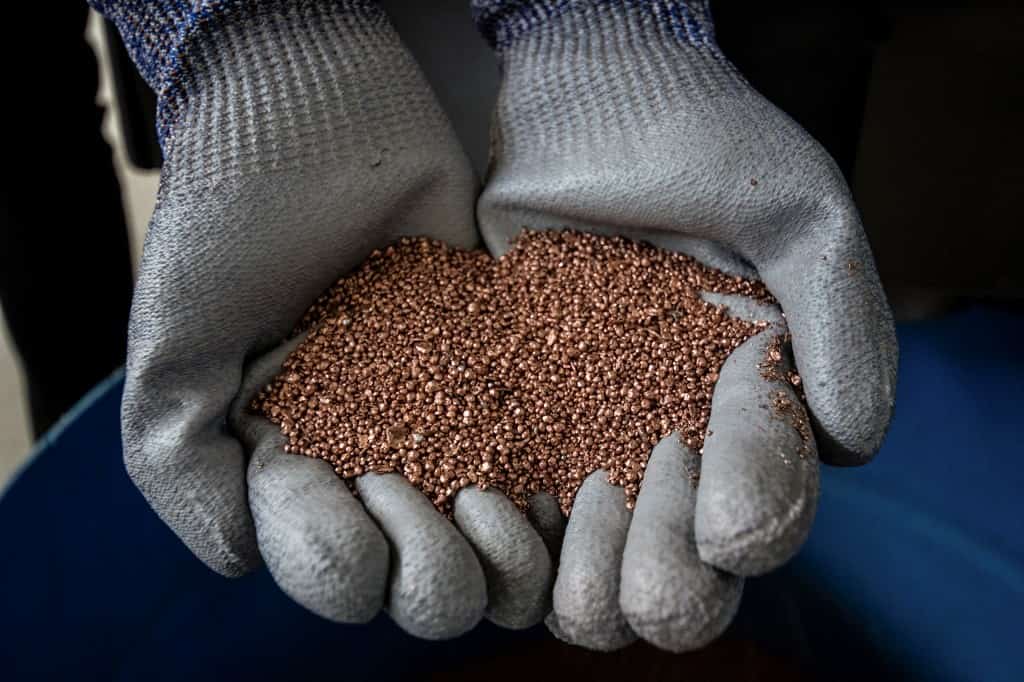In a world trying to move towards an environmentally sustainable model, what to do with millions of spent batteries? A pioneering company recycles this waste in Costa Rica in search of a circular economy future.
Phones, laptops, tablets, electric vehicles and solar receivers need lithium batteries to operate. The question is what to do with them when they run out and become garbage that takes 500 years to decompose.
“Today we know that garbage does not exist, we know that they are resources that we can renew”, says to AFP Guillermo Pereira, general director of Fortech, a company based in Cartago, 27 km east of San José, dedicated for 27 years to the recycling of technological products and for the last six years of lithium batteries.
Some 1,500 tons of batteries fall into disuse annually in Costa Rica, says Francisco, the company’s project manager.
Urban mining
While mining multinationals seek to extract lithium from the salt flats of Chile, Bolivia or Australia, in Costa Rica this company innovates with “urban mining” that recycles minerals.
He adds that “the world needs a circular economy”, that is, one that recycles and renews existing products for as long as possible in order to reverse climate change.
The batteries are collected at collection points in shopping malls, electronics stores or electric vehicle dealerships.
Daniel Rivas, technical manager in charge of batteries at Fortech, said that they are looking to “recover the materials to be able to carry out urban mining” and not have to “go to a mine to do more damage to the environment”. Mining is prohibited by law in Costa Rica.
This Fortech plant “makes Costa Rica a pioneer in Latin America in the valorization of used lithium batteries,” notes the German Development Cooperation Agency GIZ.
The University of Aachen in Germany estimates that by 2028 the amount of discarded batteries will exceed the recycling capacity in Europe.
Blackmass
When the lithium batteries arrive at Fortech’s industrial plant, they pass through a mechanical belt that feeds them into a shredder to generate a scrap of various metals.
When these metals are separated in the lab, they result in “blackmass,” a grayish powder composed of cobalt oxide, nickel, manganese and lithium.
“They are the fundamental part of the battery. They are scarce metals, high cost in the market, so it is important to recover them, in addition to the fact that their disposal by traditional means produces pollution in the environment,” said Henry Prado, a chemist at Fortech.
This gray powder is decomposed to separate the metals, but the company has not yet implemented this process.
Therefore, it sells the material obtained to industries in Europe dedicated to refining the material and manufacturing new batteries with the lithium in the “blackmass”.
By 2035, some 1.4 million tons of batteries for recycling will be produced annually in Europe alone, according to estimates by the University of Aachen.
Of each battery recycled, 57% of the resulting material is blackmass. The rest is copper, aluminum, plastic or iron, which is also sold for recycling. A ton of blackmass costs an average of $8,000 on the international market.
Environmental care
Beyond the production of new batteries from extracts of old ones, this eliminates the pollution produced by these materials if they are disposed of in the environment, says Prado.
In addition, “it means we don’t have to go to natural sources to extract them,” he adds. The chemist explains that each ton of lithium extracted from battery recycling generates a quarter of the CO2 emitted into the atmosphere by traditional lithium mining.
This mineral, called “white gold” or “oil of the 21st century,” has seen its price soar from $5,700 a ton in November 2020 to $60,500 in September 2022 thanks to the rise of electric vehicles, in the race to abandon fossil fuels.
But the dark side of lithium recovery is that each extraction plant consumes millions of liters of water per day.
Claus Kruse, representative of the German Cooperation Agency in Costa Rica, which is assisting Fortech in its innovation, points out that they are looking to achieve a global recycling chain.
“The batteries that arrive from Asia, Europe or the United States to Costa Rica are used here, end their useful life, are recycled, the materials are recovered and sent, for example, to Europe for the production of new batteries in a circular economy logic,” said Kruse.






